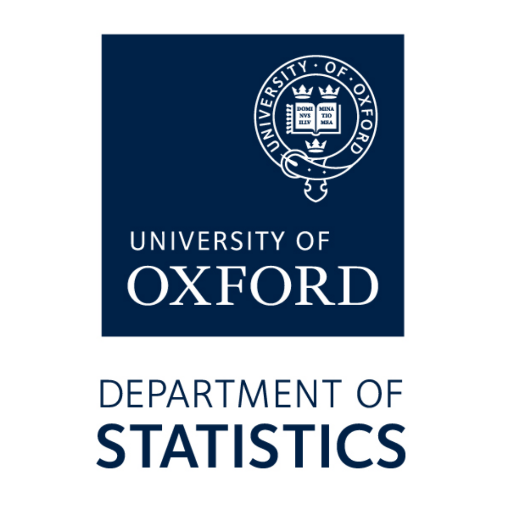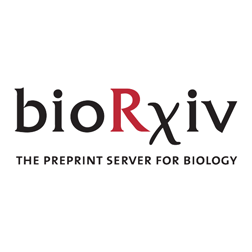
Oxford Protein Informatics Group (OPIG)
@OPIGlets
Followers
2K
Following
181
Media
47
Statuses
551
Research group led by Charlotte Deane, based in the Department of Statistics at the University of Oxford.
Oxford, England
Joined November 2018
We highlight key advances and remaining challenges in this emerging structure-aware paradigm, and discuss how integrating protein information can enable AI to design molecules with stronger binding potential and real-world drug-like properties. https://t.co/DOESNI3lq6
0
1
0
We cover the evolution from early shape-based strategies to modern co-folding models, detailing how different representations of protein pockets (voxel and graph) can encode structural information (shape, interactions, all-atom detail) and guide molecular generation.
1
0
0
Excited to share our new review on deep learning for structure-based drug design! 🎉 https://t.co/DOESNI2NAy Authors: @LucyVost*, Yael Ziv*, Charlotte Deane
1
3
3
Recently, Prof. Charlotte Deane participated in a discussion about AI as part of the Bradford Science Festival. Read some of her (and the other participants') thoughts here: https://t.co/Z157vrMOv7
blog.scienceandmediamuseum.org.uk
Roger Highfield, Science Director, reports on an AI discussion at the Bradford Science Festival.
0
0
2
Great work by DPhil student Kate Fieseler. Thanks also to co-authors Max Winokan, Joseph Morrone, Charlotte Deane, Frank von Delft, and Warren Thompson
0
0
0
Syndirella proposes congeneric series you can actually make (multi-step, digitized routes) and explores the pocket more broadly. Additionally, by buying reactants (not products), it allows you to test far more designs for the same budget
1
0
0
📜 New preprint! Syndirella is a pipeline for proposing synthesis-directed elaborations for fragment-inspired designs with explicit routes and poses! Preprint: https://t.co/Nkin6VU6Ni Code:
github.com
Generates and scores synthetically tractable elaborations from fragment screens - oxpig/syndirella
1
1
4
AI models show promise for accelerating antibody drug discovery but can fall short in testing. Research from @OPIGlets, published in Nature Computational Science highlights the need for larger, and more diverse datasets for reliable prediction. 👉 https://t.co/KIYywJ2Q2Q
0
4
7
Please be aware that OPIG's website and web apps will be down for maintenance from 09:30 UTC on Tuesday 14th October 2025, and will be unavailable for approximately one hour. Apologies for any inconvenience and for the short notice of this downtime.
0
0
0
AIR Street Capital's "State of AI" 2025 Report references Nicholas Runcie, Charlotte Deane, and Fergus Imrie's work on Assessing the Chemical Intelligence of Large Language Models. Read the whole report here: https://t.co/ANCQ2GPMTD And preprint here:
lnkd.in
This link will take you to a page that’s not on LinkedIn
🪩The one and only @stateofaireport 2025 is live! 🪩 It’s been a monumental 12 months for AI. Our 8th annual report is the most comprehensive it's ever been, covering what you *need* to know about research, industry, politics, safety and our new usage data. My highlight reel:
1
1
4
Postdocs will contribute to: - Developing and applying AI/ML methods for small molecule design and selection - Running blind community challenges - Assessing the value of large-scale structural biology datasets
1
0
1
🚨 We’re hiring! The OPIG group is looking for multiple postdocs to join OpenBind, an open science initiative generating foundational structural biology data to power the next era of AI/ML for drug discovery. https://t.co/nCRTFuqadT
https://t.co/ShjU5gOul8
2
5
18
Our first pandemic preparedness database, Pox-AbDab, is now available! We present sequence, structural & functional data on antibodies and nanobodies that bind/neutralise orthopoxviruses: DB: https://t.co/5QnYw31zdJ Preprint: https://t.co/VUCKEpqa4z Work led by Henriette Capel
biorxiv.org
In August 2024, the World Health Organisation declared the mpox orthopoxvirus to be a Public Health Emergency of International Concern for the second time in three years, emphasising the need for...
0
6
14
Congratulations to the authors: Henriette Capel, Isaac Ellmen, Chris Murray, Giulia Mignone, Megan Black, Brendan Clarke, Conor Breen, Sean Tierney, Patrick Dougan, Richard Buick, Alex Greenshields-Watson, and Charlotte Deane, for their contributions and support on the project
0
1
0
See more in the: Paper: https://t.co/r67NiflpBr GitHub: https://t.co/yEkLa0T58P WebTool:
github.com
Light-chain Immunoglobulin sequence generation Conditioned on the Heavy chain and Experimental Needs - oxpig/LICHEN
1
0
1
LICHEN outputs are customisable and tuneable to experimental needs or desired content, enabling a collaborative light sequence design by leveraging computational capabilities alongside experimental expertise.
1
0
1






